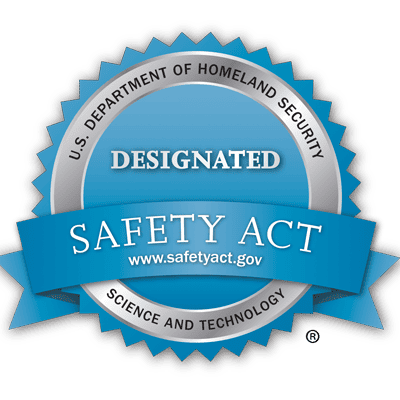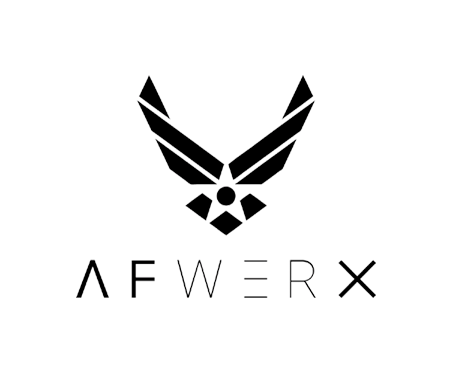













SOUTH DAKOTA
South Dakota follows the 2015 IBC and IFC. Most municipalities adopt codes without additional amendments.
Doors must be readily openable from the inside and unlatch with one motion. Access-controlled egress must include emergency power-off capability.
Haven Gen4 may be installed in commercial settings where it can demonstrate compliance with fail-safe egress standards. Signage and override buttons are often requested
MICHIGAN
Michigan follows the Michigan Building Code (based on IBC 2015) and adopts the Michigan Fire Prevention Code. Statewide consistency is maintained under the Department of Licensing and Regulatory Affairs.
Single-motion egress is required in all public and commercial occupancies. Doors must be openable from the egress side without the use of tools or special knowledge.
Gen4 is permitted where the system includes a releasing actuator that disables the lock upon fire alarm or electrical failure. Daycare centers, schools, and high-occupancy retail may require specific AHJ documentation.
WEST VIRGINIA
West Virginia enforces the 2015 IBC and IFC through its State Fire Marshal and local inspection offices. Egress enforcement is consistent and heavily focused on public access safety.
Egress doors must open with one motion. Hardware requiring multiple actions or tools is not allowed unless classified under specific access-control allowances.
Gen4 is acceptable when installed with compliant override hardware and emergency power-down features. Approval by local fire officials is standard for child care and retail facilities.
WYOMING
Wyoming uses the 2012 IBC and IFC, enforced at the city and county level. Uniformity exists across the state with limited local amendment.
Egress doors must open without key, special knowledge, or more than one motion. Any electronic system must default to unlocked under power loss or alarm condition.
Gen4 is permitted when it includes an actuator or override switch ensuring compliant release. Signage and inspection documentation are often required for institutional use.
WISCONSIN
Wisconsin follows the Wisconsin Commercial Building Code (SPS 361–366), based on the 2015 IBC. Enforcement is overseen by the Department of Safety and Professional Services.
Egress doors must open from the egress side without tools or Doors must unlatch in one motion and without tools or keys. Egress hardware must fail safe in emergencies and be operable by all building occupants.
Gen4 is compliant when configured with electric releasing hardware. Use in commercial and educational settings is subject to approval and inspection.
WASHINGTON
Washington adopts the 2018 IBC and IFC through the Washington State Building Code Council. Enforcement is strong and standardized across jurisdictions.
Doors in the means of egress must unlatch with a single action. Electronic systems must unlock during fire alarms, power outages, or with emergency push-to-exit switches.
Gen4 is permitted with integration into emergency power systems and when used with listed actuators. Schools, churches, and retail spaces often require AHJ review.
VIRGINIA
Virginia uses the Uniform Statewide Building Code (USBC), based on the 2015 IBC. The Department of Housing and Community Development oversees code adoption and enforcement.
Means of egress doors must be operable from the egress side without tools or special effort. Delayed egress and access control systems must fail safe and meet alarm interface requirements.
Gen4 is compliant when tied to a fire alarm-activated unlocking actuator. AHJs commonly require documentation or demonstration prior to approval for installation in assembly and institutional occupancies.
VERMONT
Vermont enforces NFPA 101 statewide, administered by the Division of Fire Safety. This approach offers flexibility while maintaining strict life safety expectations.
Doors must unlatch with a single motion. NFPA 101 allows delayed or controlled egress only under very specific use conditions, and only with override capability.
Gen4 is conditionally permitted when configured to release under emergency conditions. A UL-listed actuator or local override button may be required in many occupancies.
UTAH
Utah enforces the 2018 IBC and IFC with minimal amendments, and the Division of Occupational and Professional Licensing provides code administration statewide.
Doors used for egress must operate with a single releasing motion and must not require special knowledge or tools. Electric locks must deactivate under alarm conditions.
Gen4 may be installed in commercial and business occupancies when configured with an actuator and signage, subject to review by the AHJ or building inspector.
TENNESSEE
Tennessee enforces the 2012 IBC and IFC statewide, with enforcement shared between the State Fire Marshal and local jurisdictions. Local amendments may apply in larger cities.
Doors must unlatch with a single operation, and hardware requiring special knowledge or tools is not permitted. Electronic locking must release upon alarm activation or power failure.
Gen4 is permitted when configured to fail safe and release under fire alarm conditions. AHJ coordination is typically required for schools, child care centers, and commercial retrofits.
SOUTH CAROLINA
South Carolina adopts the 2018 IBC and IFC statewide with enforcement by local building departments and the Office of State Fire Marshal.
One-motion egress is required for nearly all occupancies. Doors must operate from the egress side without keys or tools, and electric locks must fail safe.
Gen4 is conditionally approved in business, retail, and daycare occupancies if installed with emergency release functionality and AHJ oversight.
RHODE ISLAND
Rhode Island enforces NFPA 101: Life Safety Code as its statewide egress standard, with oversight by the State Fire Marshal.
Egress doors must open with a single releasing motion. NFPA allows delayed egress and access-controlled egress where certain conditions are met.
Gen4 may be used if tied to a releasing actuator and properly labeled. Push-button overrides and fire alarm integration are often required for approval.
OKLAHOMA
Oklahoma enforces the 2015 IBC and IFC through local jurisdictions. Larger municipalities like Tulsa and Oklahoma City administer their own code offices.
Doors must open from the egress side with one operation. Special locking hardware must comply with IBC Sections 1010.1.9.6–1010.1.9.8.
Gen4 is approved for use when connected to a fire alarm or emergency release system. Override switches and labeling are typically required for compliance in business occupancies.
NORTH DAKOTA
North Dakota uses the 2012 IBC and IFC statewide with limited amendments. Local jurisdictions often adopt codes directly from the state without significant modifications.
Exit doors must open with one operation and without the need for tools or keys. Special locking arrangements are subject to close scrutiny.
Gen4 is compliant when installed with signage and a fail-safe unlocking mechanism. Fire alarm interconnection is often required for acceptance in assembly and education occupancies.
NEW YORK
New York uses a combination of state-adopted codes based on the 2015 IBC and the NYC Building Code, which contains unique provisions for egress. Enforcement is managed by local building departments and the NYC Department of Buildings.
Doors must open with a single motion from the egress side without the use of a key or special knowledge. Additional security hardware is allowed only if it meets exceptions and includes power-loss release.
Haven Gen4 is permitted for use in retail and business occupancies when integrated with a compliant releasing actuator. NYC-specific approvals may require coordination with DOB or Fire Prevention.
NEW MEXICO
New Mexico uses the 2015 IBC and IFC, administered through the Construction Industries Division. Municipalities may not adopt less stringent standards.
Egress hardware must allow doors to open from the inside with a single operation. Locking systems must deactivate under fire alarm or power-off conditions.
Gen4 is conditionally compliant where it operates with an actuator that releases upon emergency conditions. AHJ approval is typically required, especially in educational institutes.
NEW JERSEY
New Jersey enforces the Uniform Construction Code (UCC), which adopts the 2018 IBC and IFC statewide. Local jurisdictions may not override the state code, ensuring consistency across all municipalities.
Means of egress doors must open from the egress side with a single releasing motion and without the use of keys, tools, or special knowledge. Access-controlled egress and delayed release systems are permitted only under strict conditions.
Haven Gen4 is permitted in Group B (business), E (educational), and R-3 (residential) occupancies when installed with an approved releasing actuator that fails safe under emergency conditions. AHJ documentation is typically required at time of inspection or permit review.
NEW HAMPSHIRE
New Hampshire adopts NFPA 101, the Life Safety Code, as its statewide standard for egress and life safety. Enforcement is handled by the New Hampshire State Fire Marshal and local fire officials.
Doors must open with one releasing motion, without the need for keys, tools, or force. Controlled or delayed egress requires compliance with NFPA 101 Sections 7.2.1.6 and 7.2.1.7.
Gen4 is allowed if it includes a listed electronic actuator or override mechanism. Approval often depends on occupancy classification and integration with the fire alarm system.
NEVADA
Nevada adopts the 2018 IBC and IFC statewide, though local amendments are allowed. Larger cities like Las Vegas and Reno enforce their own versions with slight modifications.
Egress doors must be openable from the inside without the use of a key or special knowledge, and with one operation only. High-security hardware must include fail-safe override.
Gen4 is approved in office, retail, and assembly occupancies if tied to the building’s fire alarm system or power-down release. Documentation is commonly required for AHJ evaluation.
NEBRASKA
Nebraska enforces the 2018 IBC and IFC statewide. The Nebraska State Fire Marshal oversees inspection and enforcement, particularly for public and education facilities.
Exit doors must operate with a single action and must remain operable without tools, keys, or special training. Controlled egress is restricted to specific occupancy types.
Gen4 is permitted when installed with a compliant electric actuator that unlocks during emergency conditions. Fire marshal review is typically required for schools, care facilities, and high-traffic areas.
MONTANA
Montana uses the 2012 IBC and IFC. The Department of Labor and Industry administers code adoption, with many jurisdictions following the state minimum standards.
Doors in the egress path must be readily openable from the egress side and must unlatch with one operation. No special keys or simultaneous actions are allowed.
Gen4 can be used if installed with a mechanical override or keyless fail-safe actuator. Local building officials must verify that emergency unlocking is maintained.
MISSOURI
Missouri follows the 2015 IBC and IFC, though adoption is local and may vary by city or county. Most metro areas enforce current standards.
Means of egress doors must unlatch with one operation and must not require any special knowledge or force to open. Delayed egress systems are only permitted where clearly listed and approved.
Gen4 is conditionally compliant when installed with a releasing actuator and failsafe unlocking. Small businesses, retail shops, and offices may qualify with an AHJ-approved plan.
MISSISSIPPI
Mississippi follows the 2012 IBC and IFC, enforced at the local level with some county variance. Egress safety is a top priority in the commercial permitting process.
Exit doors must be openable with a single operation from the inside without requiring keys, tools, or special knowledge. Locking arrangements must comply with fire alarm interlocks.
Gen4 is permitted when the lock releases under emergency conditions or power loss. Some counties require signage identifying override switches or electronic unlocking instructions.
MINNESOTA
Minnesota enforces the Minnesota State Building Code, based on the 2020 IBC. Local jurisdictions have limited authority to amend core egress requirements.
Doors must unlatch with one releasing operation from the egress side. Controlled egress and delayed egress devices are restricted to limited occupancies and require compliance with specific code subsections.
Haven Gen4 is acceptable for use in Group B, M, and R-2 occupancies if installed with an actuator that fails safe. Written approval is often required for installation in educational and daycare settings.
MASSACHUSETTS
Massachusetts enforces the 9th edition of the Massachusetts State Building Code (780 CMR), based on the 2015 IBC, and the Massachusetts Fire Code (527 CMR), aligned with the IFC.
Doors in the means of egress must unlatch with a single releasing operation. Locking devices that require more than one action to release the latch are generally not permitted unless specifically exempted.
Gen4 may be used in Group B (business), E (educational), and I (institutional) occupancies where it is configured with an electric releasing mechanism and can fail-safe during fire alarm activation or power failure. AHJ review is strongly advised.
MARYLAND
Maryland has a mixed adoption model, with some counties following IBC 2018 and others using NFPA 101. Egress requirements are interpreted by local fire code officials with strong oversight.
Doors in the means of egress must unlatch with a single operation. High-risk occupancies like schools and medical facilities are subject to stricter review.
Gen4 is approved in state buildings when equipped with a compliant electronic release tied to the fire alarm system. Documentation and fire marshal sign-off are typically required.
MAINE
Maine adopts NFPA 101 (Life Safety Code) as its egress standard, enforced by the State Fire Marshal’s Office. This gives the state broader flexibility than strict IBC jurisdictions.
Doors must release with a single motion and without keys. NFPA 101 permits certain locking arrangements provided they do not restrict egress during emergencies.
Gen4 is permitted in select occupancies when configured with UL-listed release hardware. AHJ approval is typically required and linked to occupancy type.
LOUISIANA
Louisiana follows the 2015 IBC and IFC with Louisiana-specific amendments. Statewide adoption of life safety code provisions is uniform across jurisdictions.
Doors along the means of egress must release with a single operation and no special effort. Electronic systems must comply with fire alarm release requirements.
Gen4 is conditionally approved for commercial and business occupancies when installed with a compliant actuator and labeled fail-safe functionality.
KENTUCKY
Kentucky adopts the 2012 IBC and IFC with oversight by the Department of Housing, Buildings & Construction. Life safety and egress are central review criteria in commercial plan review.
Doors used for egress must be openable with one action, from the egress side, and without keys or tools. Special locking arrangements require smoke detection interlocks.
Gen4 is compatible in Kentucky if configured to fail-safe in loss-of-power scenarios. AHJs often require a product sheet and proof of compliance with IBC 1010.1.9.
KANSAS
Kansas follows the 2012 editions of the IBC and IFC, though some cities have moved to newer versions. Enforcement is handled by city and county building departments.
Single-motion egress is required in nearly all use groups. Locking devices must disengage automatically in the event of power loss or fire alarm.
Haven Gen4 is compliant when used with override features such as push-to-exit buttons or integrated actuators. Local code officials may request test certifications or installation specs.
IOWA
Iowa uses the 2015 IBC and IFC statewide, enforced by the State Fire Marshal Division and local AHJs. Occupancy-specific codes are emphasized for child care, education, and assembly uses.
Doors must unlatch with a single releasing motion and no special knowledge. Delayed egress and access control systems must meet additional criteria under Chapter 10.
Gen4 is permitted where an electric actuator guarantees automatic release upon alarm activation. AHJ coordination is recommended for schools, daycare centers, and high-occupancy retail.
INDIANA
Indiana follows the 2014 edition of the IBC and associated codes. The state enforces consistent life safety regulations and fire marshal review processes.
One-motion release is standard under IBC Section 1010. Doors must operate without tools or specialized actions. Locking hardware must deactivate upon fire alarm or power loss.
Haven Gen4 is conditionally compliant when installed with power-down override hardware and labeled accordingly. Commercial uses must show AHJ-approved fail-safe plans.
ILLINOIS
Illinois permits code adoption at the local level, but most jurisdictions follow IBC 2015 or later. Chicago maintains its own code, but statewide, egress expectations are uniform.
IBC-based jurisdictions enforce single-motion egress for nearly all assembly and business occupancies. Keyless and tool-free operation is required unless under strict access control allowances.
Gen4 is accepted in several counties, provided it is paired with a compliant releasing device and approved by the AHJ. Daycare and educational applications typically require override documentation.
IDAHO
Idaho enforces the 2015 IBC and IFC with minimal local amendments. Local jurisdictions have discretion over enforcement, but the baseline egress standards are consistent across the state.
Doors must open from the egress side without the use of keys or tools, and must unlatch with a single motion. Hardware that obstructs exit is not permitted unless under an AHJ-reviewed exception.
Gen4 is permitted when paired with a UL-listed actuator or electronic override system that unlocks upon loss of power or alarm signal. Retail and office use cases often qualify with proper documentation.
HAWAII
Hawaii uses the 2015 IBC and IFC with amendments adopted by the Hawaii State Building Code Council. Egress regulations follow national standards and are strongly enforced due to the state’s unique climate and multi-island coordination needs.
Exit doors must be readily openable without the use of a key or special knowledge and must unlatch with a single operation. Electronic systems are allowed with proper fail-safe protocols and signage.
Haven Gen4 may be permitted in Hawaii with documented fail-safe integration. Approval from the Fire Prevention Bureau is typically required for installation in education, retail, and public access spaces.
GEORGIA
Georgia adopts the 2018 IBC and IFC through the Georgia State Minimum Standard Codes. Egress safety is emphasized in both building and fire inspection contexts.
Doors must be capable of unlatching with a single motion. Mechanical or electrical locking devices must meet the provisions outlined in IBC Sections 1010.1.9 through 1010.1.9.8, including fail-safe operation.
Haven Gen4 is compliant in Georgia when paired with a releasing actuator and appropriate signage. AHJs may require a letter of specification or demonstration for certain installations.
FLORIDA
Florida uses the Florida Building Code and Florida Fire Prevention Code, based on the 2020 IBC/IFC. The codes reinforce one-motion egress design with minimal tolerance for non-compliant hardware.
All exit hardware must operate without the use of a key, special knowledge, or more than one action. Group E, A, and B occupancies must demonstrate clear egress capabilities.
Gen4 may be used in commercial and retail spaces if configured with an actuator that releases automatically under fire alarm conditions. State Fire Marshal approval is often required for school and care environments.
DELAWARE
Delaware has adopted the 2015 editions of the IBC and IFC. The state emphasizes adherence to simple egress design with few exceptions for delayed or sensor-based locking systems.
Exit doors must unlatch with one operation. All hardware must comply with Section 1010 of the IBC and function without requiring keys or simultaneous actions. Exceptions are case-by-case and must be reviewed.
The Gen4 system is permitted when integrated with emergency override functionality that disengages the lock automatically. AHJs may require written confirmation that the system fails safe during power outages.
CONNECTICUT
Connecticut uses the 2018 IBC and IFC, enforced through the Connecticut State Building Code. Egress regulations follow national standards with some state-specific administrative oversight.
Doors in the means of egress must open with a single releasing motion and without the use of special knowledge or effort. Electronic locking systems are allowed only if they unlock upon fire alarm or power failure.
Gen4 is approved in select commercial and educational settings when tied into an electronic unlocking system that releases during emergencies. Documentation is typically required for inspection and AHJ sign-off.
COLORADO
Colorado follows the 2015 IBC and IFC, with statewide and local adoption. The state emphasizes egress clarity and safety in all commercial and institutional facilities.
Doors required for egress must be operable with a single motion from the egress side. The use of hardware that necessitates multiple operations or tools is prohibited except under special access control allowances.
Gen4 is allowed in K-12, business, and retail settings when installed with an electronic release that disables locking upon alarm or power failure. Local AHJ approval is often needed for educational use.
CALIFORNIA
California enforces its own California Building Code (CBC) and California Fire Code (CFC), based on the 2019 IBC and IFC with numerous state-specific modifications. Life safety and egress requirements are among the strictest in the nation.
The CBC mandates that doors in the path of egress must be readily openable from the egress side without the use of a key, tool, or special knowledge, and must unlatch with a single operation. Exceptions are extremely limited.
Haven Gen4 may be permitted in certain occupancies if it includes an electric releasing mechanism that disables the locking feature during fire alarm activation or power failure. Final determination rests with the local fire authority.
ARKANSAS
Arkansas adopts the 2012 IBC and IFC statewide. The fire and building codes demand clear and unobstructed egress, including the requirement for single-action door hardware in most public and commercial settings.
IBC Section 1010.1.9.5 mandates that egress doors must be readily openable from the inside without the use of keys or special effort and must unlatch with a single motion. Delayed or sensor-based systems are allowed with restrictions.
Haven Gen4 is conditionally permitted in Arkansas when configured with a compliant electric strike or releasing actuator. Use in daycares or classrooms requires explicit documentation and approval from the AHJ.
ALASKA
Alaska enforces the 2012 editions of IBC and IFC with state-specific amendments. The building and fire codes require single-action egress in most occupancies, particularly those serving assembly and educational uses.
All doors along the path of egress must open with a single releasing operation. Exceptions may apply in Group I occupancies or special locking arrangements where approved. Electronic access control systems must release under emergency conditions.
Haven Gen4 may be approved in Alaskan jurisdictions when configured with an electronic override that unlocks upon system shutdown, power failure, or manual release. AHJ consultation is advised for educational and childcare uses.
ALABAMA
Alabama follows the 2015 International Building Code (IBC) and International Fire Code (IFC), enforced at the state and local level. These codes emphasize the importance of single-motion egress for life safety, especially in public assemblies, educational occupancies, and commercial buildings.
Section 1010 of the IBC mandates that doors in the path of egress must be openable from the egress side without the use of a key or special knowledge and with no more than one operation. Any secondary latching mechanisms or delayed egress features require explicit AHJ review.
The Haven Gen4 lock is considered conditionally compliant in Alabama when integrated with an electric releasing mechanism that deactivates upon fire alarm activation or power loss. AHJs may require labeling or supplemental signage to clarify compliance.
OREGON
Oregon adopts the Oregon Structural Specialty Code (OSSC), based on the 2019 IBC. Statewide consistency is maintained under the Department of Consumer and Business Services.
Egress doors must release with one action. Any delay or access control must be listed and must fail safe under alarm or power-off conditions.
Gen4 is acceptable when installed with UL-listed actuators and reviewed by the local building official. Business and education uses are approved on a case-by-case basis.
TEXAS
Texas adopts the 2015 IBC and IFC statewide, with cities like Houston and Austin implementing local enforcement and occasional amendments.
Egress doors must open from the egress side without tools or keys and must unlatch with one motion. Exceptions exist only for controlled egress in special occupancies.
Gen4 is allowed in K-12, business, and retail settings when installed with an electronic release that disables locking upon alarm or power failure. Local AHJ approval is often needed for educational use.
PENNSYLVANIA
Pennsylvania follows the Uniform Construction Code (UCC), based on the 2015 IBC, with enforcement by both the Department of Labor and Industry and local jurisdictions.
Doors must be openable without keys or tools and must unlatch with a single motion. Controlled egress requires interlocks and visual/audible alarms.
Gen4 is allowed in child care, business, and limited assembly occupancies if configured to fail safe and unlock during alarm events. AHJ documentation is recommended.
NORTH CAROLINA
North Carolina adopts the NC Building Code, based on the 2015 IBC, with uniform enforcement across jurisdictions by the Department of Insurance and local code officials.
Single-motion egress is required. Doors must open without tools, keys, or special knowledge. Delayed egress and electromagnetic locks must release upon fire alarm or loss of power.
Gen4 is permitted in commercial, business, and daycare uses when equipped with a listed actuator that unlocks automatically. AHJ coordination is recommended for institutional occupancies.
ARIZONA
Arizona allows local jurisdictions to adopt the IBC and IFC, with most areas enforcing the 2018 editions. Egress design is guided by strict adherence to single-motion hardware in nearly all commercial and institutional applications.
Doors in the means of egress must unlatch with a single operation. The use of auxiliary locking devices or complex mechanical operations is prohibited unless the occupancy qualifies under specific code exceptions.
In jurisdictions enforcing IBC 2018, Gen4 is generally acceptable if installed with a UL-listed releasing actuator and signage. Educational and retail occupancies require approval from the fire marshal or building official.
OHIO
Ohio follows the Ohio Building Code, based on the 2021 IBC. Ohio adopts the 2015 IFC with amendments in 2017 and 2019. The Department of Commerce and local building departments oversee enforcement.
Doors must unlatch with a single action and must not require keys or tools. Exceptions exist for specific occupancies and access-controlled egress doors.
Gen4 is conditionally approved in office, retail, and educational settings when connected to an actuator that disables the lock during emergencies. Documentation may be required for building permit sign-off.
[contact-form-7 id=”953″ title=”Untitled”]









